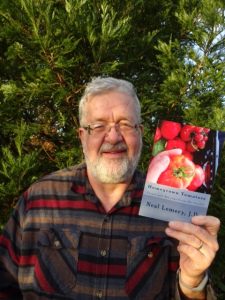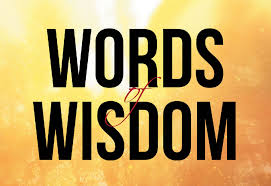
By Neal Lemery
The recent trial and verdict in Wisconsin have brought about renewed discussion and argument on a number of hot topics in our country.
This widely publicized trial and media event has stirred up conversations about racism, classism, police violence, the role of guns, law and order, economic disparity, privilege, and the fairness of the criminal justice system. Like many, I feel a range of unsettling emotions and conflict.
On their own, these issues are challenging and call for looking at our checkered and often uncomfortable history. Stirred together and heated with our current distrust of respecting and discussing with others our viewpoints have led us to this uncomfortable time.
Americans often assign our most difficult and challenging questions to our legal system, with the hope that judges and juries will sort it all out and provide us with justice. Yet justice is a word we often argue about. Its definition is elusive.
Jury verdicts have been turning points in how we are governed. They have helped us redefine and reform the law, and identified principles we should honor to better our society. We’ve always had deep and revealing discussions about the role of juries and the issues they try to resolve.
Oregon is the last state that allowed divided, non-unanimous jury verdicts in criminal cases. Today, we still wrestle with how to reconcile the relatively new national requirement that verdicts in criminal cases be unanimous with the ugly fact that defendants in those trials remain in prison. Our state constitution was amended in the 1920s to allow for split verdicts, a law that is now seen as both racist and anti-Semitic. We can badmouth Wisconsin, but we have our own racism and bigotry to deal with.
Jurors are sworn to follow the law. Experts in Wisconsin’s self-defense and gun laws opine that the Rittenhouse verdict was correct, given the complicated facts and the peculiarities of that state’s laws. https://www.npr.org/2021/11/19/1057422329/why-legal-experts-were-not-surprised-by-the-rittenhouse-jurys-decision-to-acquit
I’m a former criminal law attorney and judge, so people have asked me what I would have decided. It would be equivalent to a wild guess for me to pass judgement on Mr. Rittenhouse’s conduct. I didn’t hear every bit of the testimony, nor did I sit face to face with the witnesses. Isn’t that “eyeball test” a big factor in determining if someone is telling the truth? I didn’t hear the judge’s instructions on the law. And, I didn’t have the benefit of the discussion and wisdom of all of the jurors, who took four days to talk through their decision.
Jurors are a cornerstone of our democratic republic. We believe that ordinary common people, supplied with evidence that has been subjected to legal analysis for admissibility and to cross examination and argument, can collectively arrive at a just decision.
We’ve also required the government to meet a very high burden of proof, beyond a reasonable doubt and to a moral certainty, in trying to convict a person of a crime. Jurors are the checks and balances to prosecutors and provide a “real life” perspective to difficult decisions.
We expect a lot from juries, and it is popular to second guess them. We also tend to make up our own minds relying upon short bursts of information and commentary from various media. We come up short in delving into long term, complex issues.
I’ve been involved in a lot of jury trials and I sometimes have disagreed with the decision. Yet, I’ve found jurors to be good citizens who take their job seriously and to err on the side of doing the right thing. I respect their hard and devoted work.
Sometimes, my response to a verdict was to ask the Legislature to change the law. And, sometimes I voiced support for social change and educational reform. If I remained silent, I became part of the problem.
Part of any reform of our criminal justice system is having an educated pool of jurors who are critical thinkers and knowledgeable about America’s government and our often uncomfortable history of privilege and discrimination. Perhaps our response to the Rittenhouse verdict is to more fully understand all of the uncomfortable reasons that brought the shooter and his victims to those few awful and life-changing moments on the streets of Kenosha.

Books: NEW book – Building Community: Rural Voices for Hope and Change; Finding My Muse on Main Street, Homegrown Tomatoes, and Mentoring Boys to Men


